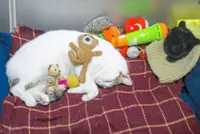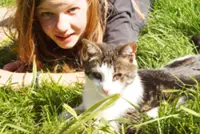Fat cats. They’re great pets, Internet famous and, according to a new study, possibly the next big thing in obesity research.
Published in Scientific Reports, the study discovered our feline friends could help scientists better understand gut microbiomes and how they affect obesity in people.
Follow us on our official WhatsApp channel for breaking news alerts and key updates!
Thank you for your report!





